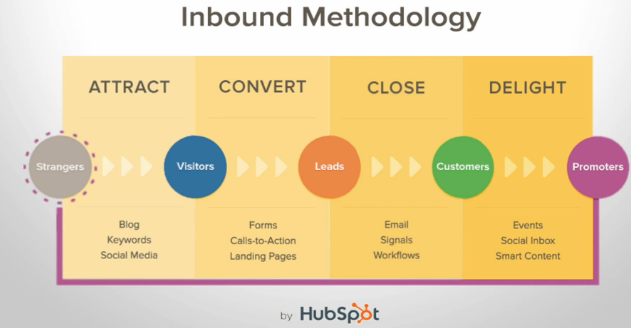Say you happen to see a compelling ad for a $100 Bluetooth-speaker on your phone and you felt the need to buy. Would you, go ahead and purchase it immediately, look at reviews, or do some research before making a decision?
I’m sure you'd ‘Google’ straight away… I know I would.
You may also compare prices with other popular brands, read customer reviews regarding their experiences with the product, look out for discounted deals and have a casual chat about it with your peers. And then, and only then, if everything looks rosy and you’re satisfied to your heart’s content, would you jump online and order the product?
Well, I don’t blame you… after all, a staggering 81% of shoppers conduct online research before making big purchases.
Now, that speaks volumes about the type of ‘buyer behaviour’ we have developed in recent times. Research before Purchase - a common thread seen in almost all ‘buyer personas’ that we come across in today’s highly disruptive ‘digital’ world.
On the flip side, it also reveals how hard it is for ‘Sellers’ to sell their products/services to such savvy, resourceful and extremely well-informed and empowered customers.
Look at this..
Remember during the heydays of Broadcast Marketing, it was a lot easier to sell – when Marketing and Advertising almost meant the same thing. All you had to do was buy enough advertisement spaces in popular print media, and strategically push Radio and TV adverts during prime time slots, "lo and behold", profits came marching your way!
 |
 |
 |
 |
A classic era of ‘Interruptive Marketing’ where common people had no choice, but to sit in front of their TV's or listen to their Radio's and consume whatever the big brands and corporates shoved through the channels of Network TV.
The tables have now turned. We've already entered the era, which Seth Godin calls the era of ‘Permission Marketing’.
In his words; "Permission marketing is the privilege (not the right) of delivering anticipated, personal and relevant messages to people who actually want to get them. It recognises the new power of the best consumers to ignore marketing. It realises that treating people with respect is the best way to earn their attention."
Unlike interrupting prospective customers through commercials in-between their favourite TV programmes, or through those annoying telemarketing calls that distrupted your family supper or through spam emails - Permission Marketing is based on those ethical principles of developing a long-standing relationship with customers. Build trust and brand awareness, and in the process, create the chances of making a sale or lead.
However, to hold the attention of the current sophisticated consumers and to market and sell one’s product to them, robust Customer Relationship Management (CRM) Systems are needed.
Check this out...
Given this gap was addressed earlier by Oracle, it was only in 1999 when Salesforce revolutionised the way Sales Departments operated with their efficient and cost effective cloud-based CRM technology.
What is CRM you ask?
CRM is an approach to managing a company's relationship with current and potential customers. The CRM tries to analyse data about the customers' history with a company, to improve business relationships, specifically focusing on customer retention, and ultimately to drive sales growth.
Let’s not forget that CRM's are not standalone solutions when it comes to delivering sales and marketing goals. All Marketing platforms such as; HubSpot, Pardot or Marketo, are required to work in tandem with the CRM system to nurture leads into the system.
However, HubSpot’s Inbound Methodology can provide a complete solution with regards to Marketing, Sales and CRM tools – all integrated under one roof, leading the customer journey from; stranger, to customer and finally to promoter.
ATTRACT: This is the initial stage where the right traffic (‘buyer personas’), is targeted to visit your site via non-interruptive, but compelling stories written through blogs, web page content, social publishing, newsletters and SEO.
CONVERT: The visitors attracted are converted into ‘leads’ through data collection, such as names and email addresses, through Forms, Landing Pages and Calls-to-Action. This info is collected in exchange for free content such as e-books, white papers, access to webinars, etc.
CLOSE: Once the visitors are converted to ‘leads’, it's a consistent effort to convert those leads to customers through marketing automation - email marketing and lead nurturing (on the basis of their needs and lifecycle stage).
DELIGHT: The journey doesn’t end for the visitors once they become a customer. Inbound Marketing continues to engage with the customer to build happy and loyal customers. These customers inturn become promoters and evangelists of your company.
In this highly competitive digital age, brands today need to enter peoples’ lives through multiple devices and communication mediums, as the technology and consumption patterns continue to evolve.
The Sales Force of the future needs to understand that we’re entering the age of Customer. It's estimated that by 2020, Customer Experience will overtake Price and Product as a key brand differentiator Walker.
Today we're heavily driven by Metrics and KPI's in the race to acquire more customers. Besides crunching numbers, brands should also be aware that a lasting relationship with customers is only nurtured through ‘trust’ and a genuine passion to serve.
If you'd like more assistance with keywords, or would like to discuss anything covered today, we'd love to hear from you.
Call Andy Fox (me) on (03) 5249 5570 or email andy@element7digital.com.au
Our Website is element7digital.com.au








